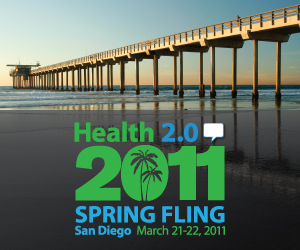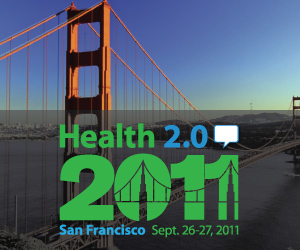Designing in a Code-a-thon: Tips from the Trenches
Health 2.0 Code-a-thons (like the one coming up this weekend) are an amazing way to bring people together to generate new product concepts and prototype solutions. These one-day events are incredibly effective in getting ideas out that have the potential to become real healthcare products. But, keep in mind that it’s just one day! Here are some tips to help new and returning participants navigate the day.
Preparation
Get familiar with the different data sets before hand. This will help you when you’re looking for ways to solve health issues. You can also sketch out some ideas ahead of time just to warm up, but don’t get too attached to these; coming up with ideas by collaborating with the diverse minds during the code-a-thon is part of the fun.
Teams
If you have people you like working with, it makes thing easier, but by all means reach out to the other participants. It’s an amazing group of people with myriad different experiences.
It’s advantageous to form a team of people with complementary skills, developers, empathizers, and storytellers. You’ll need to prototype something and you’ll need developers to do that. Strong concepts come from solving real health problems. For this, it’s helpful to have a healthcare expert or someone who has strong empathy around a particular healthcare issue. Storytellers are people who are great at ideation or visualizing the concept and showing it off in a way that is easily understood during the final presentation. Designers are great for this. Designers also spend a lot of time thinking about user’s needs and often make great empathizers.
Concept Generation
When it comes to the concept, it’s important to identify a health issue and opportunity before figuring out the design and necessary technology that would address it. Not the other way around! Look to your empathizers for inspiration. We’ve seen other teams start coding a solution as soon as they sit down but we’ve found value in holding off on construction until we know what we’re building.
It is important to sketch your ideas on paper or a whiteboard so that everyone on the team can be on the same page. Start with some warm-up ideas and flush them out a little before building. Sometimes, the best ideas come from hitting your head against the problem several times before you really understand it and see the interesting opportunities. After you’ve put down a couple of ideas, focus on one concept! One day is too short to prototype and communicate a sophisticated system.
Building
When it comes to building, you’ll need to leverage the skills available on your team. Tailor your concept to the development platforms that your team is comfortable with. In past competitions, judges have looked for technical feasibility. You have to show something working but this doesn’t mean that it needs to be a fully functional product. A strong concept, that’s technically feasible and has minimal working components, is more interesting than fully functional code that fails to address real healthcare issues.
Storytelling
At least an hour before the final presentation, one team member should break off and focus on structuring the presentation. It’s better to be more visual than too verbose. Try to communicate your ideas through images and don’t make people read through paragraph text or long bullet lists. These general presentation tips are even more relevant as teams have very little time to communicate to the judges the context of the health issue and how their solution addresses it. A simple and focused story is critical to getting great ideas across.
Above all else, have fun with it! Embrace the intensity of the day and connect with others that are passionate about developing for healthcare. Finding people you really enjoy working with is worth more than most people realize.
Alex Tam is a Senior Interaction Designer at global innovation firm frog design. He’s part of frog’s Healthcare Expert Group and is passionate about designing for health and bringing products to market that create positive health outcomes. He’s designed products for Amgen, Ethicon, Espresso Fitness, LifeScan, Welch Allyn. Alex’s team was one of the winners of the Hacking-4-Health developer challenge with their Healthy Commute concept. He recently hosted HealthGamesCamp at frog design’s San Francisco studio.



